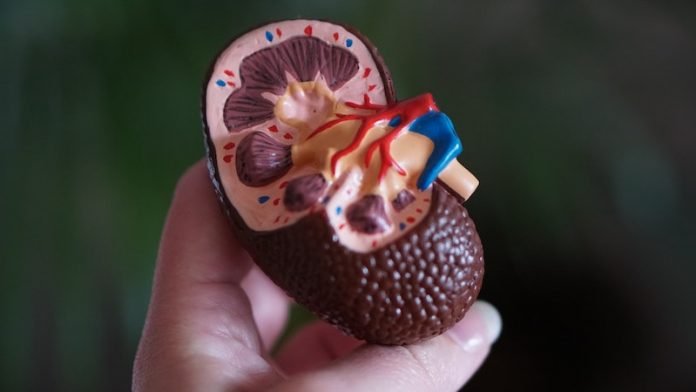
In a new study from the University of Southampton, researchers found taking too much ibuprofen or similar painkillers can damage kidneys.
They found some people at high risk are still being prescribed them.
Previous research found that prescriptions of non-steroidal anti-inflammatory drugs (NSAIDs) reduced over the two years before the pandemic.
However, they were still being given to some people at high risk of kidney damage.
NSAIDs are commonly prescribed to treat pain and inflammation. However, they can cause serious complications such as acute kidney injury (AKI).
This is where a person’s kidneys suddenly stop working properly. It can range from minor loss of kidney function to complete kidney failure.
Without quick treatment, abnormal levels of salts and chemicals can build up in the body. This affects the other organs’ ability to work properly.
If the kidneys shut down completely, the person may need dialysis or a kidney transplant. It can be fatal.
In the study, the team analyzed data on 702,265 adults from a large primary care database in Hampshire to investigate NSAID prescriptions over two years.
Their results suggested a general decrease in NSAID prescriptions. This included in those at higher risk of developing AKI.
However, it revealed that some people at higher risk of developing AKI were still being prescribed NSAIDs.
These included older patients and those with long-term conditions like chronic kidney disease and diabetes.
This study shows concerning signs that NSAIDs are still being prescribed to some people at high risk of kidney damage.
Most prescribers are well aware of the risks of NSAIDs, particularly of inflammation and bleeding in the gastrointestinal tract, but our study reveals a need for greater attention to this AKI risk.
If you care about kidney health, please read studies that these lifestyle habits could protect your kidney health, and this type of drug could slow down chronic kidney disease.
For more information about kidney disease, please see recent studies about newer type 2 diabetes drugs that have heart and kidney disease benefits, too and results showing that diabetes can dramatically reduce the kidney’s ability clean itself.
The study is published in BJGP Open and was conducted by Dr. Simon Fraser et al.
Copyright © 2022 Knowridge Science Report. All rights reserved.



